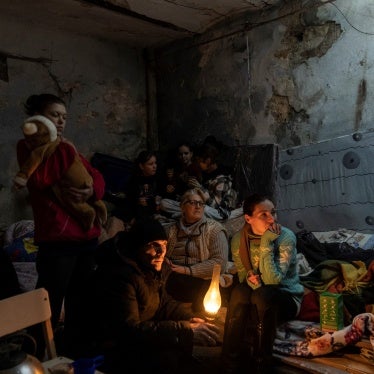(Berlin) – A journalist in Kazakhstan who has criticized local government officials and written on other sensitive issues was seriously beaten by unidentified assailants on August 20, 2013. Police were slow to respond and to order a medical examination. The Kazakh authorities should investigate the attack swiftly and effectively, and thoroughly examine possible motives related to his work.
Igor Larra, a journalist with the independent newspaper Svoboda Slova, was attacked by four men at about 11 p.m. on August 20 as he left a friend’s apartment building in Aktobe, a city in western Kazakhstan. The assailants hit him over the head with a crowbar and kicked him in the face. They took two mobile phones and 30,000 KZT (approximately US$200). Larra suffered a concussion, a head injury, cuts on his face, and abrasions on his body.
“A critical journalist who has been attacked before has been hit over the head with a crowbar,” said Mihra Rittmann, Europe and Central Asia researcher at Human Rights Watch. “This follows a pattern in Kazakhstan. The authorities need to get to the bottom of what happened to Igor Larra, including whether it was related to his work.”
Larra immediately went to the police station to report the assault, but it was several hours before the duty officers agreed to take his statement. They told him a forensic medical examination to document his injuries could wait until the next day. Only on August 22, two days after the attack, did the police have him undergo a medical examination.
In the many years that Larra has worked as a journalist he has covered such sensitive issues as strikes by oil workers – including the extended labor strikes in Zhanaozen, which originated in 2010 – and criticized the work of local administrative bodies. The week before the attack, Larra published a critical article about the construction of a massive building in the center of Aktobe by Chinese investors.
This is not the first time Larra has been attacked, and on the previous occasion the assailants made clear it was retaliation for his journalism, Human Rights Watch said.
On March 22, 2010, three unidentified men assaulted him near his home, breaking his nose and jaw and inflicting multiple contusions to his head. Reporters Without Borders reported that the assailants did not take any of Larra’s belongings and that one had said, “Larra, this is a greeting from Zhanaozen.”
In the weeks prior to that attack, Larra had been covering a 19-day strike by oil workers employed by OzenMunaiGaz, a subsidiary of state-owned KazMunaiGaz. The industrial dispute preceded the extended strikes by oil workers in western Kazakhstan in 2011. Adil Soz reported that Larra did not file a complaint with the police about the March 2010 attack because he did not trust the authorities to conduct a proper investigation.
The environment for freedom of expression in Kazakhstan is grim, Human Rights Watch said. Government loyalists dominate Kazakhstan’s broadcast media outlets. The government harasses independent or pro-opposition media with prohibitive penalties for civil defamation and criminal penalties for libel, and unidentified thugs attack journalists who write about controversial subjects.
Adil Soz reported that there were nine attacks on media workers in the first half of 2013. Authorities often fail to investigate such attacks, and the attackers go free.
In a rare exception, a court in western Kazakhstan in July sentenced four men to up to 14 years in prison on charges of “attempted murder” for a vicious attack on an independent journalist, Lukpan Akhmedyarov, in April 2012.
“The authorities need to take violent attacks on journalists seriously, to find the attackers, and to prosecute them,” Rittmann said. “They should start by going after the men who attacked Larra.”
Correction: In its news release of August 22, Human Rights Watch incorrectly stated that Adil Soz tied the recent attack on Larra to his work. The following press release has been updated to reflect the change.






